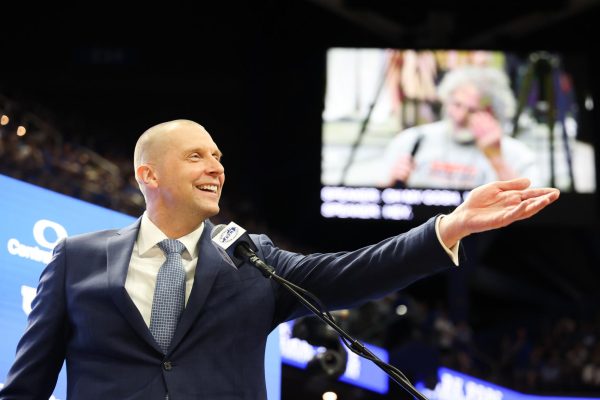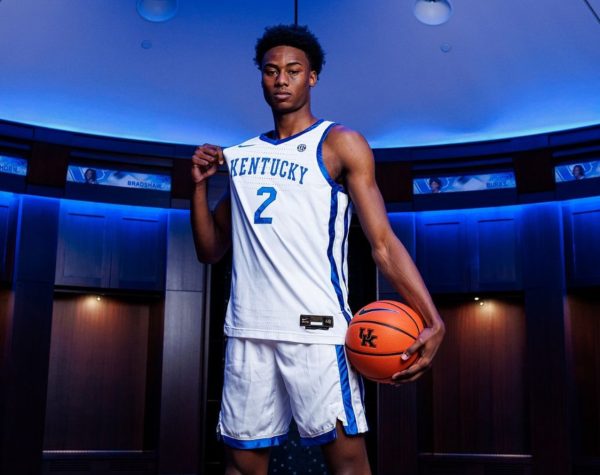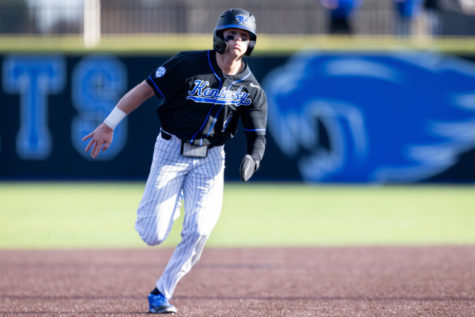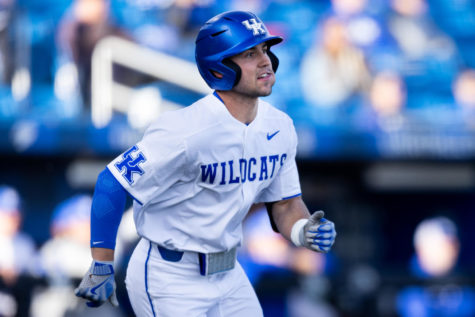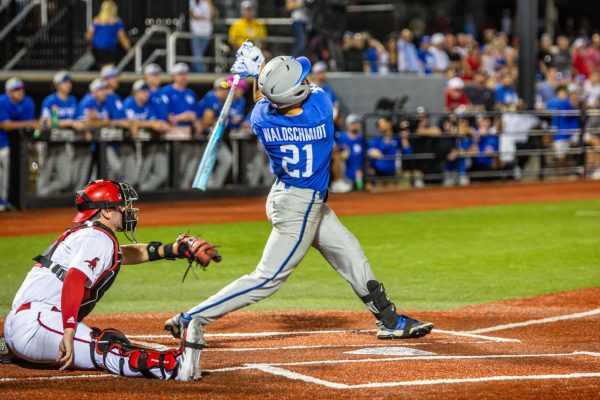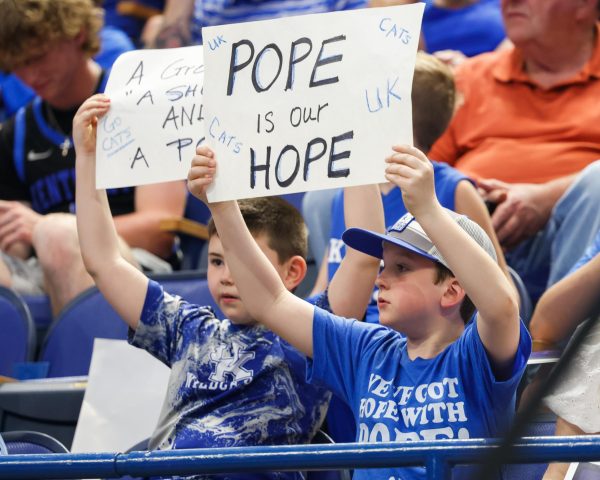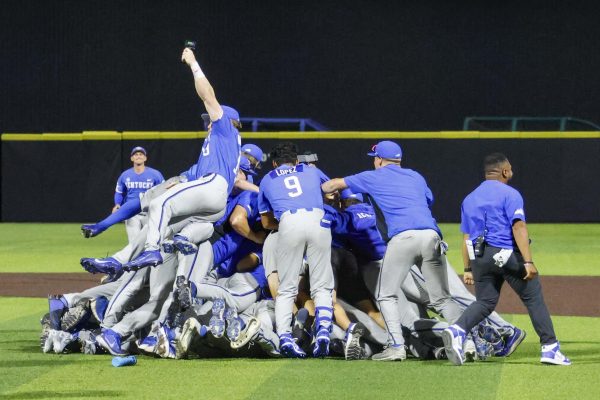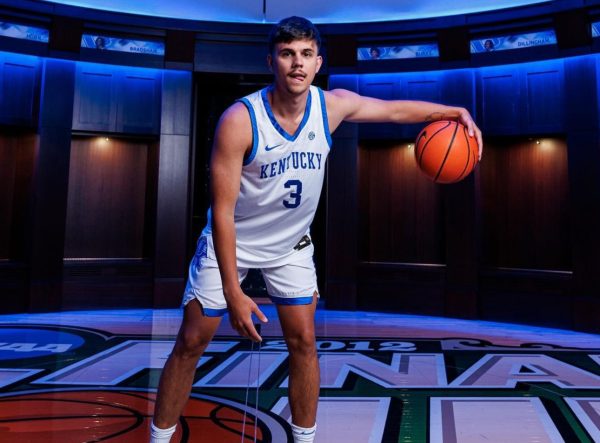John Calipari talks football, handshakes on Rich Eisen podcast
October 28, 2011
UK head coach John Calipari appeard on NFL Network anchor Rich Eisen’s podcast today. They talked a little football, postgame handshakes, UK basketball and social media, although most of what he talked about seemingly applied to UK even if it was about some other subject. Here are some highlights.
- Calipari said the first thing you see in his office is a Steelers helmet signed by Terry Bradshaw and Mike Tomlin.
- Calipari discussed Tomlin as a coach: “A player’s coach, yet if you’re around him, yet if you’re around him, he has a competitive spirit and a zeal to win. Knowing the history of the Steelers. He’s someone who you would want to lead you up that hill. … And he wasn’t afraid of (following in great coaching footsteps). The second thing with him, when you watch his guys respond, he’s always going to be behind his players. He’ll take responsibility.”
- Calipari compared the Steelers to the Boston Red Sox, Kentucky basketball, Notre Dame football, and the Boston Celtics and Los Angeles Lakers. “To be in those situations, you’re held to a higher standard, the expectations are beyond the norm, and the fan support and scrutiny is like no other.”
- On the Steelers’ chances and the randomness of a one-and-done championship tournament format: “They’ll be in the hunt at the end to do that Super Bowl thing again. And that’s what you want as a coach. You want your chance. To be up at bat. (To have) the kind of team that can do it. There’s no guarantee. When you’re talking one-and-done, someone on the other team (can) go nuts, and you lose.”
- Right now, Calipari doesn’t have time to watch any NFL on Sundays, because UK practices from 10-12 in the morning, then he brings the players back to his house and he watches tape, then back to practice from 4-6. And some weekends recruits will be visiting campus. “These first few weekends are the roughest for me.”
- Calipari discussed post-game handshakes, prompted by the recent scuffle between two NFL coaches after a game. Calipari said the NBA is different in college in that coaches just wave to each other rather than going to shake hands. “The first game, I went to shake hands, and they grabbed me and said, ‘we don’t do that here. You just wave.’ So I would do the presidential wave, win or lose.”
- Calipari said he gets a firm, sincere handshake and exchange pleasantries about 75 percent of the time in college. “Sometimes if you don’t know the guy or if it’s a rough rivalry and we see each other all the time, it’s just, we get out of there.”
- Calipari said he’s had a few instances of “fly-bys” where coaches would just try and escape the handshake. “What happens sometimes is, when they beat you, they pull you in and tell you great game. Then they lose and they want the fly by,” Calipari said. “There’s times when I’ll grab his hand and make sure he doesn’t run from me.”
- Calipari said he learned from Larry Brown — the “master,” he called him — to always compliment the other coach. “If you ever hear me postgame, I will mention the coach by name and brag about him. I made a habit out of it.”
- Calipari said players and recruits don’t remember anything except what’s happened the last five or so years. “They don’t remember 1996 or 98. What they do remember is Derrick Rose, the last two or three years. That’s it.”
- Calipari said the main difference about coaching in college is that he’s trying to instill life skills. “If one of them [a player] is a jerk, you council them aggressively. You sit him at practice. Now, you coach in the NBA. You coach that same jerk. You start him, you get him 20 shots a game, you promote him in the media. So you can trade him.”
- Calipari reiterated that Terrence Jones has changed everything about him. He said Jones wanted to be a top-10 pick last year, and when he learned he probably wasn’t going to be following feedback at the Kentucky Combine, he decided to come back.
- Calipari said he uses social media mainly to connect with fans — and to counter those in the media who try to define him. “It’s connected us to fans, it’s separated us from the pack. And we get our message out. There are people in your profession [the media] who write to define people. We get to respond and define who we are.”









































































































































